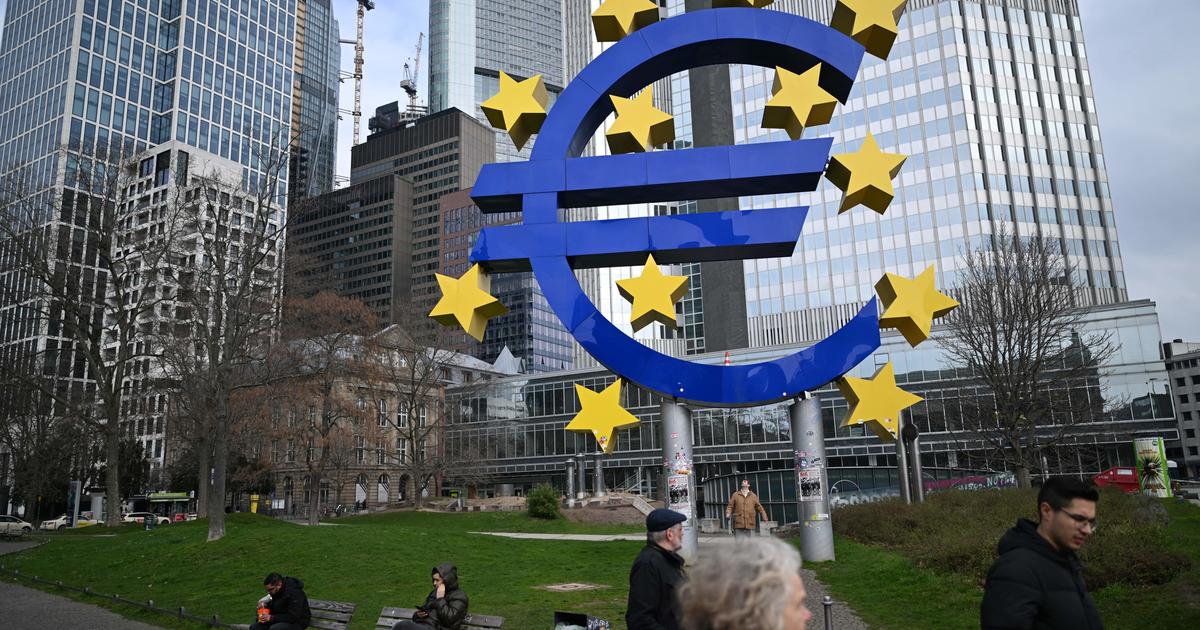The European Central Bank (ECB) extended its restrictive monetary policy on Thursday, moving cautiously despite falling inflation and growing impatience to see interest rates fall to a record level.
It thus left its rates unchanged for the fourth consecutive time.
The rate on deposits, which is the reference, is maintained at its historic high of 4%, as it has been since October, the institution decided at the end of the meeting of the Board of Governors.
The markets are always on the lookout for clues on the timetable for future relaxations.
If the scenario of a drop in borrowing costs during 2024 seems to be a consensus among the guardians of the euro, the question now is to know when and at what pace this new cycle will begin.
The press release from the Governing Council does not give the slightest indication on this point.
The subject will therefore be at the heart of questions during the press conference scheduled for 2:45 p.m. (1:45 p.m. GMT).
At the January meeting, ECB President Christine Lagarde said that the issue of rate cuts had not been addressed and that it was
“
premature
”
.
A priori, the price data is moving in the right direction: the ECB on Thursday lowered its inflation forecast for 2024 in the euro zone, seeing it fall to 2.3% under the effect of the weaker impact of prices Energy.
The institution now expects it to reach its 2% target in 2025. The central bank wants to ensure that this trend is sustainable.
Also read Rates: when the market does the Fed's work
Turning in June?
After having been divided by three between the record of 10.6% reached in October 2022 and autumn 2023, inflation is evolving in a more hesitant manner.
It slowed to 2.6% in February but this decline was a little less marked than expected.
In France, prices started to rise again by 0.8% monthly between January and February.
Scrutinized by the financial markets and the ECB, so-called core inflation, that is to say without the very volatile prices of energy and food, slowed down in February to 3.1%, against 3.3% in January.
The ECB does not want to relax its efforts and risk compromising the effects of its unprecedented monetary tightening campaign carried out since July 2022 to control the surge in prices caused by the Russian war in Ukraine.
By increasing borrowing costs at an unprecedented rate, demand for credit has been dampened, affecting consumption and investment by businesses and households alike.
The downside of this policy: the euro zone economy has been stagnating for almost a year and a half and economists judge that the institution is erring on the side of caution, risking compromising a rebound in activity.
In these new macroeconomic projections unveiled on Thursday, the ECB lowered its GDP growth forecast for the euro zone in 2024 to 0.6% compared to 0.8% previously.
Desire not to rush the rate cut
But
“
the euro zone economy as a whole has avoided recession ,
”
notes Mark Wall, economist at Deutsche Bank.
The ECB thus maintained its growth forecast for next year at 1.5% and slightly increased it for 2026 to 1.6% (compared to 1.5% previously).
Enough to reinforce the institution in its desire not to precipitate the reduction in rates.
The financial markets were hoping that a turning point would come in April, they are now betting instead on June.
Will the American central bank, which will meet on March 19 and 20, draw first?
Its president Jerome Powell was cautious on Wednesday, deeming it a priority to avoid a rebound in inflation, because continued progress on this front
“
is not assured
”
.
Concerns mainly relate to inflation in services as well as
“
pressures on domestic prices
”
which
“
remain strong, in part because of strong wage growth
”
, as highlighted on Thursday by the ECB.
After three years during which prices rose faster than wages, a catch-up is taking place through social negotiations in companies and professional sectors.
These demands are particularly strong in Germany where a new strike paralyzes rail and air transport on Thursday.
To the point of having forced certain ECB officials to participate remotely in the Frankfurt meeting.

